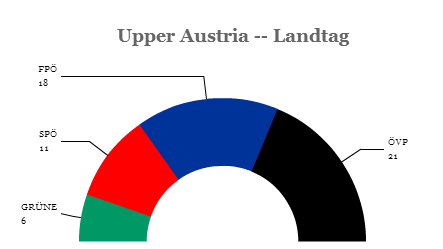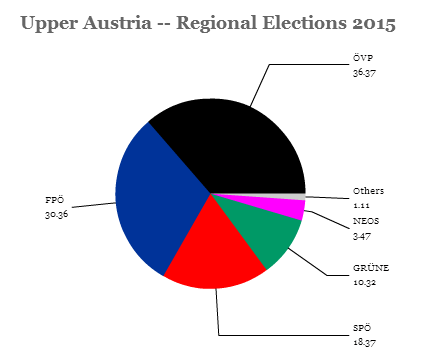
Amid the refugee crisis that has strained European borders, internal and external, since late summer, there’s increasing discussion of using formal diplomatic sanctions against Hungarian prime minister Viktor Orbán for his intransigence in dealing with migrants, many of whom are Syrians fleeing years of civil war or otherwise miserable refugee camps in an overburdened Lebanon.![]()
The last time that the European Union assessed diplomatic sanctions, however, was in 2000, when it chided Austria for letting the far-right Freiheitliche Partei Österreichs (FPÖ, Freedom Party of Austria) into government.
But in the first electoral test for the eastern European countries at the heart of the migrant crisis, it was the FPÖ that emerged as the clear winner, surging 9% to second place in Oberösterreich (Upper Austria)’s regional elections and winning 18 of the regional parliament’s 56 seats.
Its leader, Heinz-Christian Strache, already had reason to be pleased with himself after taking the party to third-place status in Austria’s national parliamentary elections in September 2013.
His party only narrowly lost to the long-dominant center-right Österreichische Volkspartei (ÖVP, Austrian People’s Party), which has controlled the state government since 1945, and whose leader, Josef Pühringer, has served as the state’s governor since 1995. Though its population is just 1.44 million, the state is Austria’s industrial heartland and the country’s third-most populous state, and it borders Germany’s Bavaria and the Czech Republic. The center-left Sozialdemokratische Partei Österreichs (SPÖ, Social Democratic Party of Austria) of Austrian chancellor Werner Faymann fell to third place.
Since 2003, the Austrian People’s Party has governed Upper Austria in a so-called ‘black-green’ coalition with Die Grünen (the Greens/Green Alternative). Though the Greens actually improved on their support from the most recent election in 2009, the ÖVP’s loss of seven seats means that their partnership is two seats short of a majority in the unicameral Landtag. Pühringer will have to form a minority government, looking to the Social Democrats or the Freedom Party for support on a case-by-case basis or otherwise enter into negotiations for a ‘grand coalition’ with the Social Democrats. Continue reading Freedom Party surges in Upper Austria with its gaze fixed on Vienna


